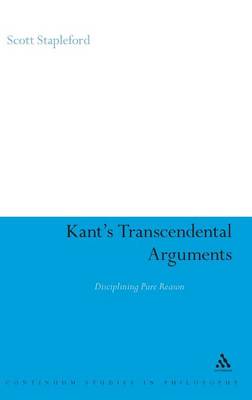Continuum Studies in Philosophy
1 total work
This is a new monograph offering the first focused study of the place of transcendental arguments within Kant's system as a whole.Two currents of thought dominated Western philosophy in the seventeenth and eighteenth centuries: Continental Rationalism and British Empiricism. Despite the gradual dissemination of British ideas on the Continent in the first decades of the eighteenth century, these fundamentally disparate philosophical outlooks seemed to be wholly irreconcilable.However, the publication of Immanuel Kant's "Critique of Pure Reason" in 1781 presented an entirely new method of philosophical reasoning that promised to combine the virtues of Rationalism with the scientific rigour of Empiricism. This book offers the first extended analysis of Kant's method of proof in philosophy. The author constructs a model based on Kant's own statements about his procedure and then examines his famous proofs in light of it. Great emphasis is placed on historical accuracy and the debunking of popular myths about Kant's aims and doctrines. The result is a compelling new picture of Kant that will challenge current assumptions.
